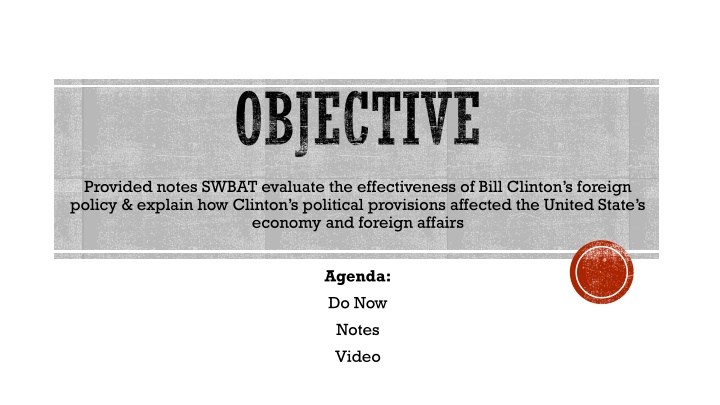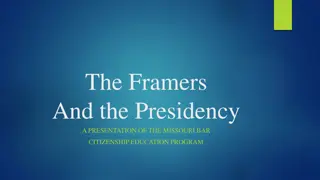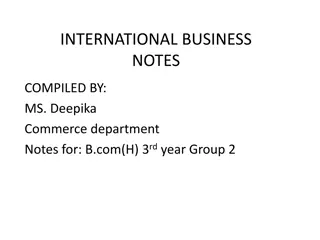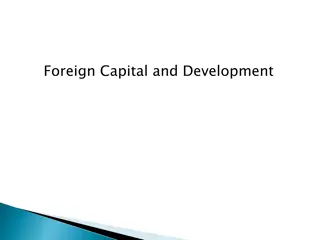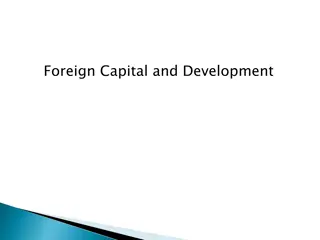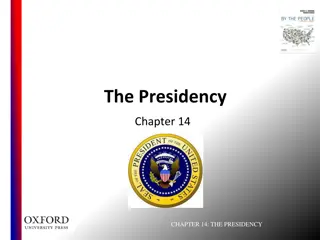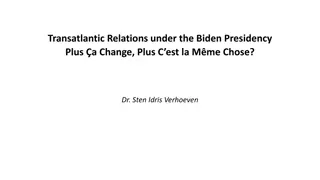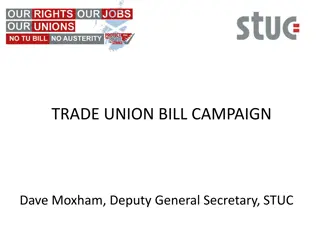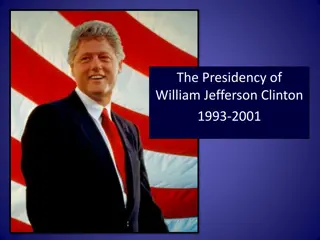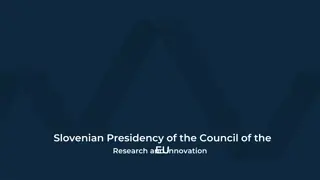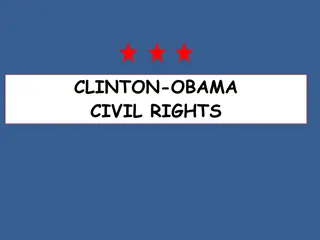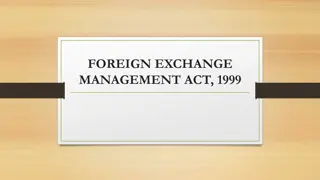Impact of Bill Clinton's Presidency on the U.S. Economy and Foreign Affairs
Bill Clinton's presidency was marked by a mix of liberal and conservative policies, leading to welfare reform, deficit reduction, and economic growth. His initiatives in balancing the federal budget, cutting government spending, and lowering taxes resulted in a budget surplus and sustained economic expansion, coinciding with the technology industry boom. These measures had significant impacts on the U.S. economy and foreign relations during his time in office.
Download Presentation

Please find below an Image/Link to download the presentation.
The content on the website is provided AS IS for your information and personal use only. It may not be sold, licensed, or shared on other websites without obtaining consent from the author.If you encounter any issues during the download, it is possible that the publisher has removed the file from their server.
You are allowed to download the files provided on this website for personal or commercial use, subject to the condition that they are used lawfully. All files are the property of their respective owners.
The content on the website is provided AS IS for your information and personal use only. It may not be sold, licensed, or shared on other websites without obtaining consent from the author.
E N D
Presentation Transcript
OBJECTIVE Provided notes SWBAT evaluate the effectiveness of Bill Clinton s foreign policy & explain how Clinton s political provisions affected the United State s economy and foreign affairs Agenda: Do Now Notes Video
DO NOW: Below are five people interested in being President of the United States. Determine whether or not the below candidates meet the basic requirements, and who you would vote based on the information below. 36 year-old from New Jersey who has been a Senator for 4 years already 76 year-old former House of Representatives member 47- year-old Governor of Arkansas 35 year old business woman from North Carolina
THE ELECTION OF 1992 In the 1992 election, George Bush lost to Arkansas governor Bill Clinton
The Presidency of Bill Clinton Clinton defined himself a new Democrat by embracing both liberal & conservative policies Clinton worked with Republicans to reform the welfare system The law put limits on how long people could receive benefits & allowed states to decide how welfare money would be spent
The Presidency of Bill Clinton Clinton defined himself a new Democrat by embracing both liberal & conservative policies Clinton worked with Congress to reduce the federal deficit & balance the federal budget In 1997, Clinton cut gov t spending & lowered taxes
For the 1sttime in 30 years, the govt had a surplus which Clinton used to pay down the nation s debt
Clintons deficit reduction coincided with a boom in the technology industry; This led to the longest sustained era of economic growth in U.S. history Dow Jones Industrial Average, 1901-2010
TECHNOLOGY A direct result of modern technology was increasing interdependence among nations The new information age economy include instant global communication, high-tech computer/media businesses, & a decline of traditional occupations
FOREIGN POLICY Clinton signed the North American Free Trade Agreement (NAFTA) which reduced trade barriers among USA, Mexico, & Canada (strongest among big businesses)
FOREIGN POLICY During his presidency, Clinton committed U.S. troops to peacekeeping efforts From 1995 to 1999, U.S. troops were sent to Bosnia to stop ethnic cleansing by Serbs & to Kosovo to stop a civil war From 1993-1995, U.S. troops were sent to Somalia to offer food & restore order to civil war
FOREIGN POLICY The chief reason that the United States sent troops to Bosnia in 1995 was to try to bring a peaceful end to the Civil War
